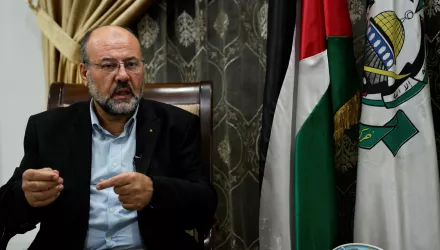THIS LAST week’s deeply contrasting stories of two New Englanders caught in the Middle East’s maelstrom of violence — the savage murder of James Foley and the joyous release from captivity of Peter Theo Curtis — point to a central question: Why do some hostages die while others are released?
The answer, according to a remarkable investigative report by The New York Times, can often be traced to who pays ransoms and who does not. The Times acknowledged that Curtis’s release may not have involved payment to his captor, the Syrian terrorist group Al Nusra Front. But the Times went on to note that, unlike the United States, “European nations and organizations” had paid huge ransoms averaging $2.5 million for the release of at least 12 European hostages held with Foley during the last year. The Europeans were freed while Foley’s family was left with a heartbreaking loss.
A former Times journalist, David Rohde, wrote in an incisive article for Reuters last week that this issue — the difference between a Europe willing to pay and a US government refusing to do so — requires a national debate. Rohde has real credibility to speak up. He was taken captive by the Taliban in 2008, managing to escape months later. His is an important warning to Americans and Europeans that they should now close ranks against terrorists and the Islamic State’s threat to murder American journalist Steven Sotloff and other hostages.
The United States and European governments have followed dramatically opposite paths on hostage-taking for decades. In the 1980s, when American journalists and educators were held as hostages for years by Hezbollah and others in Lebanon, the US government refused to negotiate or pay ransoms. American diplomats serving in the most dangerous places such as Beirut were advised by our government that it would not negotiate for their release if they were abducted. This policy did little to liberate individual American hostages, but it did keep the government from succumbing to terrorist blackmail.
Many European governments have taken a completely different approach. While they deny it, they do pay ransoms or look the other way when European organizations pay hostage-takers. The Times story estimated that the ransoms paid by European countries to terrorist groups may amount to more than $125 million in the last five years — money that terrorist groups use to continue fighting, bombing, and taking more hostages.
Europe’s approach has one straightforward, compelling advantage — it saves the lives of their citizens. But, there is a big price — it encourages more abductions of European journalists, aid workers, and business people. The US policy of not paying ransoms has minimized the number of US hostages, but it “has put Americans at a disproportionately high risk of execution if they are abducted,’’ according to a New York Times story by Rukmini Callimachi.
As a former American official, I don’t pretend to have all the answers on this difficult, complex issue. Who can deny, for example, the agonizing trade-offs for the families? If these were our sons, daughters, brothers, or nephews, wouldn’t we, like the distraught families of the American hostages, do anything to get them safely back home?
But President Obama has a different responsibility — to determine what is best for the entire country and to take the fight to the terrorists themselves. He is thus correct in refusing to negotiate with terrorists, but he is badly undercut by Europe’s inclination to do just that.
That is why Obama and European leaders should consider a policy of no ransom and no concessions to terrorists when they meet at next week’s NATO summit in Wales. It is self defeating for them to have such divergent, contradictory policies concerning the lives of our citizens held by cruel, uncivilized terrorist groups in Syria, Iraq, and elsewhere.
Some will criticize such an approach as unrealistic given deeply ingrained social and political differences between Europe and America. Some Europeans, reflecting perhaps their weakening power, are willing to submit to terrorist blackmail. American leaders of both parties, on the other hand, are taking a more principled and ultimately more courageous course — to resist the terrorists and uphold the rule of law.
While we rejoice over Curtis’s release, we must remember James Foley whose life, as Obama noted, “stands in stark contrast to his killers.” And Europe must now disavow paying ransoms and join the United States in retaking the initiative to combat the moral depravity of the terrorists.
Burns, Nicholas. “Why do some hostages die, and some are released?.” The Boston Globe, August 28, 2014



